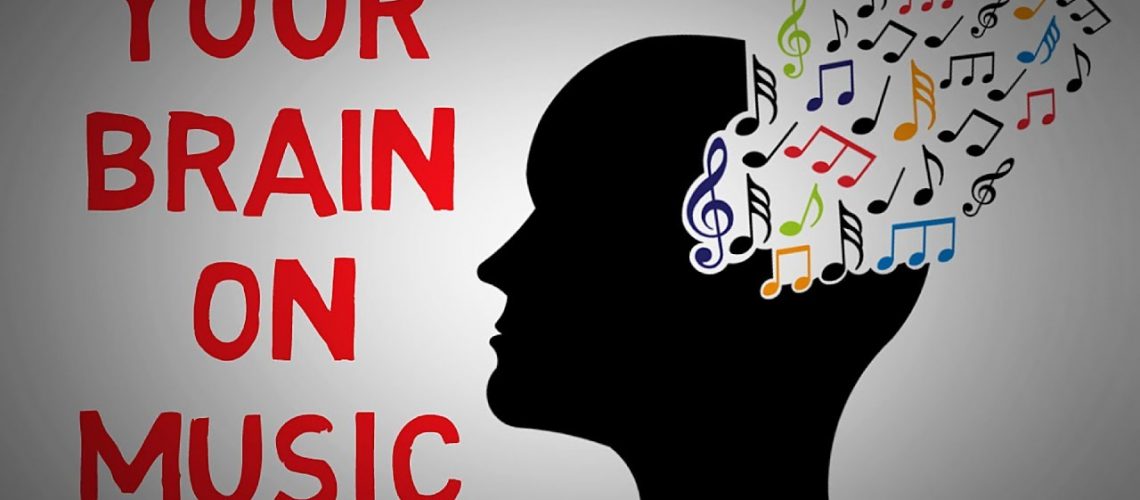Music can play a part in brain development, learning, mood, and even your health. This video explains how music benefits the brain.
Video by BetterThanYesterday
Key Takeaways
Music has been an important part of every human culture, both past and present. It can play a part in brain development, learning, mood, and even your health.
There used to be a popular belief that music is processed in the right hemisphere of our brains, along with art and other creative activities. However recent findings show us that music is distributed throughout the brain.
Through studies of people with brain damage, we’ve seen patients who have lost the ability to read a newspaper, but can still read music. Or individuals who can play the piano, but lack motor coordination to button their own sweater.
Today we know that music listening and performance, engage nearly every area of the brain that we have so far identified. One of the most common affects music has, is that it can alter our mood and feelings, by stimulating the formation of certain brain chemicals.
Film directors use music to tell us how to feel about scenes that otherwise might be unclear, or to elevate our feelings at particularly dramatic moments. Think of a typical fight scene in an action film, it’s the music that truly makes the scene epic.
Also our brains respond differently to happy and sad melodies.
- One study showed that after hearing a short piece of sad music, participants were more likely to interpret a neutral expression as sad.
- And if the melody was happy, the neutral expression was perceived as a happy one.
- Now when you listen to music you actually like, your brain releases a neurotransmitter called dopamine. Dopamine is a chemical which causes a feeling of satisfaction.
- When listening to your favorite part of the song you get the same sort of pleasure that you experience when eating food, doing drugs or having sex.
So basically music can makes us feel good. And if you’re having a particularly good day, listening to some of your favorite upbeat music can actually amplify that feeling of happiness.
One interesting thing is that when someone is sad, they often reach for sad music and they find that it helps them feel better. Now you might be thinking why would they do that? Why wouldn’t a sad person listen to happy music?
The reason is that when you’re sad or depressed you usually feel misunderstood. Like the people around you don’t understand you. If you would listen to happy music in this state, it would only contribute to this feeling of detachment.
However if you put on the right piece of sad music you say to yourself: “Oh, that’s how I feel. This musician understands me.” So the sad music turns out to be soothing, unlike the happy music when you’re feeling down.
Another interesting aspect is how listening to music can affect our exercise regime.
As our body realizes we’re tired and wants to stop exercising, it sends signals to the brain to stop for a break. Listening to music competes for our brain’s attention, and can help us override those signals of fatigue.
- A 2012 study, showed that cyclists who listened to music required 7% less oxygen to do the same work as those who cycled in silence.So not only can we push through the pain to exercise longer and harder, when we listen to music, but it can actually help us to use our energy more efficiently.
In the last few decades, neuroscientists have made enormous breakthroughs in understanding how our brains work, by monitoring them with instruments like fMRI.
So when researchers got the participants to listen to music, they saw multiple regions light up. But what’s more interesting is that when they observed brains of musicians, while playing an instrument, the whole brain lit up like sky with fireworks.
So while listening to music engages some interesting brain regions, playing music is the brain’s equivalent of a full body workout.
Also through brain scans we have found that musicians have different brains than non-musicians. People who play an instrument have bigger, better connected, more sensitive brains.
- A study from 2008 showed that children who had at least three years of instrumental music training, performed better than their non musical counterparts on a variety of tests. Mainly in auditory discrimination abilities and fine motor skills.
- But they also tested better on vocabulary and nonverbal reasoning skills, which involve understanding and analyzing visual information, such as identifying relationships, similarities and differences between shapes and patterns.
- These two areas in particular are quite removed from musical training as we imagine it, so it’s fascinating to see how learning to play an instrument can help kids develop such a wide variety of important skills.
It’s also never too late to start learning an instrument.
Seniors who play an instrument or sing with other people are more resistant to cognitive and memory problems. The reason might be the creation of alternative connections in the brain that could compensate for cognitive decline as we get older.
So both listening and creating music has it’s own benefits.
However music affects each brain differently and someones music can be another persons noise. And researchers have found that listening to music you like, increases blood flow to the brain more than listening to music you don’t like. To draw a line, you’ll always get more benefits from listening and making music, you actually like.

